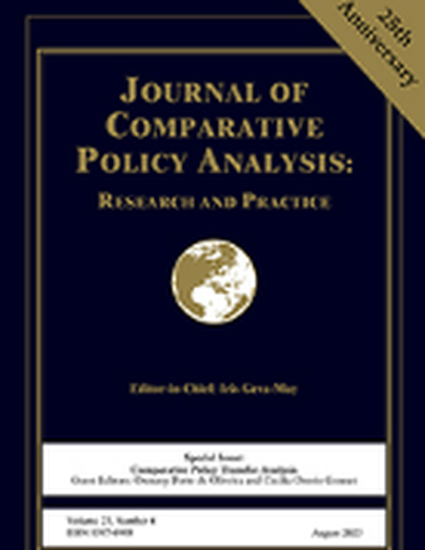
Article
Gendered Impacts of Environmental Degradation in Informal Settlements: A Comparative Analysis and Policy Implications for India, Bangladesh, and Pakistan
Journal of Comparative Policy Analysis: Research and Practice
(2021)
Abstract
Degraded urban environments disproportionately affect marginalized populations, and especially impoverished women in South Asia’s informal settlements, where climate change vulnerabilities and gender inequalities are extreme. A comparative analysis was conducted of three neighboring countries, India, Bangladesh, and Pakistan, where urban environments, climate risks, and gender relations exhibit significant variances. With original survey data from 12 informal settlements across New Delhi, Dhaka, Islamabad, and Lahore, it was found that women are less empowered than men in all three countries, but their determinants related to environmental degradation and climate change vary. Qualitative data from key informants reveals several explanatory mechanisms of observed differences.
Disciplines
Publication Date
2021
DOI
https://doi.org/10.1080/13876988.2020.1829454
Citation Information
Amit Patel, Hina Lotia, Ammar A. Malik and et al.. "Gendered Impacts of Environmental Degradation in Informal Settlements: A Comparative Analysis and Policy Implications for India, Bangladesh, and Pakistan" Journal of Comparative Policy Analysis: Research and Practice Vol. 23 Iss. 4 (2021) p. 468 - 484 Available at: http://works.bepress.com/ammar-malik/2/
